16.08.2022
3 PM
The Platform Economy: The Future of Work?
Panel discussion|What will working look like in the future?
-
Online Online
- Language English
- Price Free | with registration
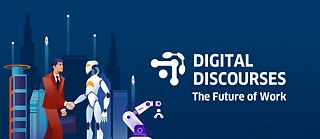
Register
Platforms are changing the world of work. Apps that provide services such as ride-hailing, food delivery, and design are reshaping traditional employment models. Although the types of jobs may not be new, people now have the ability to structure their working lives with more freedom. Dubbed as the "platform economy," it has become a lifeline for people who are otherwise unable to find regular jobs and provides opportunities for many to find side gigs.
As the platform economy progresses and employs more people, it has become clear what the price of freedom might be for many people. To have independence and flexibility, they might lose security and benefits. Their status as contractors, not as permanent workers, puts them in an especially precarious position since more and more are depending on what were once "side jobs" as their primary income.
With platforms growing in importance, how does the platform economy affect the future of work? What will working look like in the future?
We bring together researchers in this field to present findings on the current challenges of the gig economy in their respective countries, followed by a discussion on the future of work.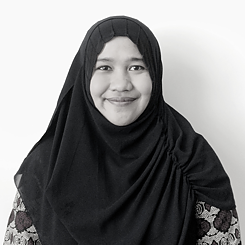 © Arlitadian Pratama
Suci Lestari Yuana
© Arlitadian Pratama
Suci Lestari Yuana
A lecturer at Department of International Relations Universitas Gadjah Mada, Indonesia. Yuana is pursuing her doctoral degree in the Copernicus Institute of Sustainable Development, Utrecht University. Her research focuses on the socio-political dynamic of digital platform and its impact to sustainability transition studies. Her works has been referred in the MIT Technology Review as part of AI Colonialism series reportages.
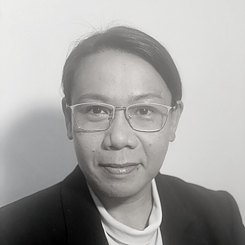 © private collection
Cheryll Ruth R. Soriano
© private collection
Cheryll Ruth R. Soriano
Professor in the Department of Communication, De La Salle University. As Principal Investigator for Fairwork Philippines, her current research explores digital communication and transformations in labor and organizing in the digital economy. She is co-editor of Asian Perspectives on Digital Culture: Emerging Phenomena, Enduring Concepts (Routledge, 2016) and co-author of Philippine Digital Cultures: Brokerage Dynamics on YouTube (Amsterdam University Press, forthcoming).
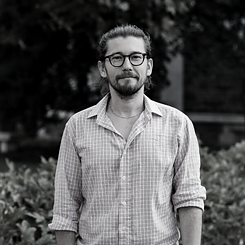 © Washington University in St. Louis
Oğuz Alyanak
© Washington University in St. Louis
Oğuz Alyanak
A cultural anthropologist whose research spans labor migration, urban studies, religion, and masculinity. Following his PhD (Washington University in St. Louis 2019), Oğuz moved to Germany as a Volkswagen Stiftung postdoctoral fellow (University of Göttingen 2019/2020). He is a postdoctoral researcher at the Fairwork project, joining a team of scholars to explore working conditions in the platform economy in Germany.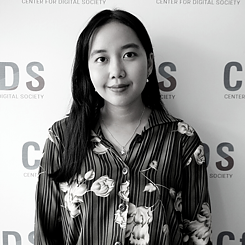 © Raden Sutejo Hermani Putro
Amelinda Pandu Kusumaningtyas
© Raden Sutejo Hermani Putro
Amelinda Pandu Kusumaningtyas
A researcher at the Center for Digital Society (CfDS), a research center under the Faculty of Social and Political Sciences, Universitas Gadjah Mada, Indonesia. She is also a researcher for the Fairwork project in Indonesia. She holds a Bachelor of Arts in Sociology from Universitas Gadjah Mada. Her research interests include digital society, social inequality, gender studies, and environmental sociology.
About the Project Digital Discourses
Platforms are changing the world of work. Apps that provide services such as ride-hailing, food delivery, and design are reshaping traditional employment models. Although the types of jobs may not be new, people now have the ability to structure their working lives with more freedom. Dubbed as the "platform economy," it has become a lifeline for people who are otherwise unable to find regular jobs and provides opportunities for many to find side gigs.
As the platform economy progresses and employs more people, it has become clear what the price of freedom might be for many people. To have independence and flexibility, they might lose security and benefits. Their status as contractors, not as permanent workers, puts them in an especially precarious position since more and more are depending on what were once "side jobs" as their primary income.
With platforms growing in importance, how does the platform economy affect the future of work? What will working look like in the future?
We bring together researchers in this field to present findings on the current challenges of the gig economy in their respective countries, followed by a discussion on the future of work.
SPEAKERS
 © Arlitadian Pratama
Suci Lestari Yuana
© Arlitadian Pratama
Suci Lestari Yuana A lecturer at Department of International Relations Universitas Gadjah Mada, Indonesia. Yuana is pursuing her doctoral degree in the Copernicus Institute of Sustainable Development, Utrecht University. Her research focuses on the socio-political dynamic of digital platform and its impact to sustainability transition studies. Her works has been referred in the MIT Technology Review as part of AI Colonialism series reportages.
 © private collection
Cheryll Ruth R. Soriano
© private collection
Cheryll Ruth R. SorianoProfessor in the Department of Communication, De La Salle University. As Principal Investigator for Fairwork Philippines, her current research explores digital communication and transformations in labor and organizing in the digital economy. She is co-editor of Asian Perspectives on Digital Culture: Emerging Phenomena, Enduring Concepts (Routledge, 2016) and co-author of Philippine Digital Cultures: Brokerage Dynamics on YouTube (Amsterdam University Press, forthcoming).
 © Washington University in St. Louis
Oğuz Alyanak
© Washington University in St. Louis
Oğuz AlyanakA cultural anthropologist whose research spans labor migration, urban studies, religion, and masculinity. Following his PhD (Washington University in St. Louis 2019), Oğuz moved to Germany as a Volkswagen Stiftung postdoctoral fellow (University of Göttingen 2019/2020). He is a postdoctoral researcher at the Fairwork project, joining a team of scholars to explore working conditions in the platform economy in Germany.
MODERATOR
 © Raden Sutejo Hermani Putro
Amelinda Pandu Kusumaningtyas
© Raden Sutejo Hermani Putro
Amelinda Pandu KusumaningtyasA researcher at the Center for Digital Society (CfDS), a research center under the Faculty of Social and Political Sciences, Universitas Gadjah Mada, Indonesia. She is also a researcher for the Fairwork project in Indonesia. She holds a Bachelor of Arts in Sociology from Universitas Gadjah Mada. Her research interests include digital society, social inequality, gender studies, and environmental sociology.
About the Project Digital Discourses